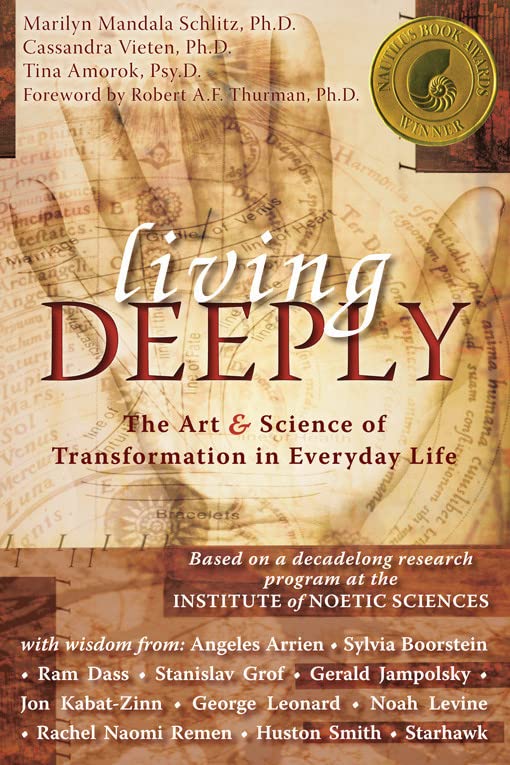Marilyn Mandala Schlitz, Ph.D., is a clinical research scientist, medical anthropologist, writer, speaker, thought leader, and change consultant. Her work over the past three decades explores the interface of consciousness, science, and healing. Her recent book, Consciousness and Healing: Integral Approaches to Mind Body Medicine has been described as a tour de force. Her research has been featured in such forums as the New York Times, Los Angeles Times, and ABC World News. Schlitz serves as vice president for research and education at the Institute of Noetic Sciences and as senior scientist at the Research Institute, California Pacific Medical Center.
Cassandra Vieten, Ph.D., is a licensed clinical psychologist, director of research at the Institute of Noetic Sciences, codirector of the Mind Body Medicine Research Group at California Pacific Medical Center Research Institute in San Francisco, CA, and copresident of the Institute for Spirituality and Psychology. Her research has focused on mindfulness-based approaches to cultivating emotional balance, the involvement of biology, psychology, and emotion in addiction and recovery, the role of compassionate intent and belief in healing, and the factors, experiences, and practices involved in psychospiritual transformation. She has published several academic articles and chapters, has conducted numerous presentations at international scientific conferences, and is coauthor of Living Deeply.
Tina Amorok, Psy.D., is a clinical and research psychologist at the Institute of Noetic Sciences where she coedited the anthology, Consciousness and Healing: Integral Approaches to Mind-Body Medicine and is an investigator on the IONS Transformations of Consciousness Study. with a background in integral health and healing, clinical psychology, and change management, Amorok has designed and implemented programs for professional, university, corporate, and lay sectors on wellness and transformation. Her current research, entitled the Eco-Trauma and Eco-Recovery of Being, examines how to heal and transform the primal wound of human alienation from nature from which destructive ecological behaviors, violence, and unhealthy life styles arise.
Dr. Robert A.F. Thurman is the Jey Tsong Khapa Professor of Indo-Tibetan Buddhist Studies in the Department of Religion at Columbia University, President of the Tibet House U.S., a non-profit organization dedicated to the preservation and promotion of Tibetan civilization, and President of the American Institute of Buddhist Studies, a non-profit affiliated with the Center for Buddhist Studies at Columbia University and dedicated to the publication of translations of important texts from the Tibetan Tanjur. Thurman's work and insights are grounded in more than 35 years of serious academic scholarship. He has a B.A., A.M. and Ph.D. degrees from Harvard and has studied in Tibetan Buddhist monasteries in India and the United States. A long-time advocate of Buddhist monasticism, in 1962, Thurman became the first American ordained as a Tibetan Buddhist monk. He gave up his robes after several years, however, when he discovered he could be most effective in the American equivalent of the monastery, the university. He has written both scholarly and popular books, and has lectured widely all over the world. His special interest is the exploration of the Indo-Tibetan philosophical and psychological traditions, with a view to their relevance to parallel currents of contemporary thought and science.




